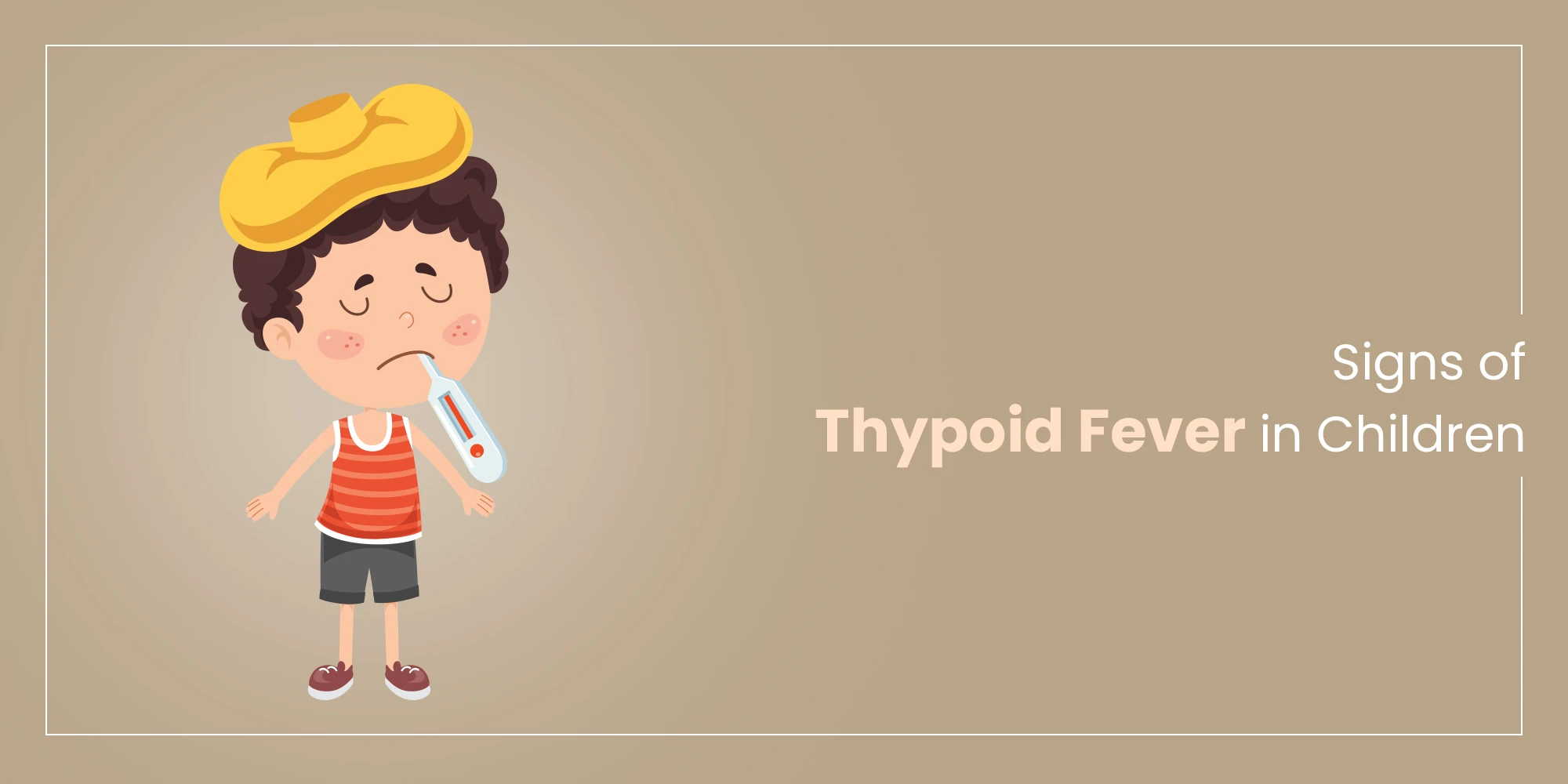Typhoid fever, a potentially life-threatening illness caused by the bacterium Salmonella typhi, can be particularly concerning when it affects children. Characterized by high fever, abdominal pain, and other systemic symptoms. Typhoid fever requires prompt medical attention to prevent serious complications. This blogs talks on signs of typhoid fever in children, causes, the necessary steps to take if your child is diagnosed, and preventive measures to protect your family from this illness.
Signs of Typhoid Fever in Children
Identifying typhoid fever in children can be challenging, as its symptoms often resemble those of other common illnesses. However, certain signs are indicative of typhoid fever and warrant medical evaluation:
- One of the hallmark signs of typhoid fever is a sustained high fever that can exceed 104°F (40°C).
- Children may complain of stomach aches, which can be severe and localized in the lower right abdomen.
- A persistent headache often accompanies the fever.
- General malaise and extreme fatigue are common, making it difficult for the child to engage in usual activities.
- Anorexia or a significant decrease in appetite is often observed.
- These may include nausea, vomiting, constipation, or diarrhea. The stool may have a characteristic “pea soup” appearance.
- A dry, persistent cough may also be present.
- Some children develop a rash of flat, rose-colored spots on the trunk and abdomen.
Causes of Typhoid Fever
Typhoid fever is primarily transmitted through ingestion of food or water contaminated with Salmonella typhi. The bacteria can enter the body through:
- Poor sanitation practices can lead to the contamination of drinking water and food.
- Inadequate handwashing after using the toilet or before handling food can facilitate the spread of the bacteria.
- Close contact with an infected person can increase the risk of transmission.
What to Do if Your Child Has Typhoid Fever?
If you suspect your child has typhoid fever, it’s crucial to take immediate action to ensure their health and prevent further spread of the infection:
- Consult a healthcare professional as soon as possible. Early diagnosis and treatment are vital to prevent complications.
- Typhoid fever is treated with a course of antibiotics prescribed by a doctor. Ensure that your child completes the entire course of medication, even if symptoms improve.
- Keep your child well-hydrated by encouraging the intake of fluids like oral rehydration solutions (ORS), water, and clear soups.
- Ensure your child gets plenty of rest to help their body fight off the infection.
- Keep a close watch on your child’s symptoms. If they worsen or new symptoms develop, seek medical advice immediately.
- To prevent the spread of the infection to other family members, keep the sick child in a separate room if possible.
- Ensure strict hygiene practices, including regular handwashing with soap and water, especially after bathroom visits and before eating or preparing food.
Precautions to Prevent Typhoid Fever
Preventing typhoid fever involves measures to improve hygiene and sanitation. Here are some key precautions to protect your family:
- Consider vaccinating your child against typhoid fever, especially if you live in or plan to travel to an area where the disease is common.
- Ensure that your drinking water is safe. Use boiled or bottled water, and avoid ice in drinks if you are unsure of the water source.
- Practice good food hygiene. Wash fruits and vegetables thoroughly, cook food thoroughly, and avoid eating raw or undercooked meat and seafood.
- Teach your child the importance of washing their hands with soap and water, particularly before meals and after using the toilet.
- Be cautious about consuming food from street vendors, as these may be more likely to be contaminated.
- Maintain clean bathroom facilities and ensure proper disposal of waste.
- Educate your family and community about the importance of hygiene and the risks of typhoid fever.
By understanding the signs of typhoid fever, taking swift action if your child shows symptoms, you can protect your child and family from this serious illness.

